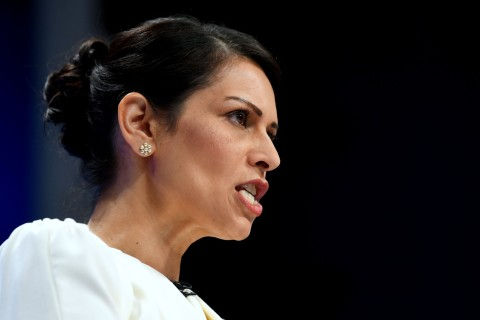What does feminism mean today?
- Sowmiya Baskaran
- Jan 17, 2021
- 4 min read
Updated: Feb 14, 2021
The word ‘Feminism’ gets thrown around frequently especially recently with the #MeToo movement. Some people identify as feminist while 1 in 5 choose not to because of the negative connotations surrounding the word. Yet others simply don’t know what feminism means.
The Oxford dictionary defines feminism as ‘the advocacy of women's rights on the ground of the equality of the sexes’. This definition gives us a basic understanding of what feminism means and the aim of the movement which is equality between the sexes. It is argued that people mention they are not feminist when indeed they are. It is likely you are a feminist if you believe or want men and women should have equal rights and opportunities.
The term ‘feminism’ was formerly used in England in the 19th century for equal political and legal rights for women. This fight for equality was carried out in the early 1900s in the first wave of feminism where women fought for equal franchise and property rights. However, by the roaring 60s, the fight diverted to family, workplace and reproduction. The same aim was upheld during the third wave of feminism as the second wave failed to reach such social and economic equality. However, there is a key distinction to be made. That is that the third feminism went beyond white middle and upper class women. Finally, the fourth wave of feminism, the current one, extends to include youths and social media platforms for a digital presence and fight for equality. However, it can be said that we have not really reached such equality in the rest of the globe and in some respects in the UK too.
I think that the fact that the fourth wave feminism includes youths is important. I have experienced sexism in Primary School. On one occasion my peers were handing out leaflets to join the Year 6 after-school football team and I was interested in joining and was hoping to get a leaflet, however there was one left and there was a male classmate that also wanted it. They chose to give it to my male classmate over me as they wanted to play against other schools and there would not be any ‘girls’. I remember feeling this wave of anger as a 10 year old girl but I didn’t challenge it. I knew it was sexist but felt as if it was pointless for me to argue about it. This clearly shows that the progression of equality between the sexes is slow. Moreover, it demonstrates why the fourth wave of feminism includes youths as youths tend to dismiss sexism more than adults.
Feminism during the first three waves was not that inclusive. Feminism in the 1900s was not inclusive to all genders, race, socioeconomic background or sexuality. People of colour were left behind and those who were homosexual were not identfied to be feminist and not worthy of such equality. Feminism is more conclusive than ever before. There are little to no obstacles to being a feminist and gaining such equality.
Although Oxford has defined feminism, people have their own definition of what feminism means but the same root belief exists. As you will see from the collection of definitions, there is a general consensus that it is not a war of sexes which is one of the many misconceptions but just a state of being equal in all aspects of life.
This is what feminism means to me: gender equality in all aspects regardless of gender, race, socioeconomic background, and sexailtuy and not just focusing on women’s issues but men being and treated equally.
I asked a few of my peers what does feminism mean to them and they responded with:
Respondent 1: “A movement where both men and women hope that women are treated the same way as men are such as equal opportunities at work, equal pay, no discrimination, no describing us as weak and incompetent at some things just because of our sex, and allowing women to be free to do whatever.”
Respondent 2: “Feminism to me means trying to achieve equality between women and men. We are not trying to make women better than men but we want them to be equal because at the moment it is not.”
Respondent 3: “Equality and removal of bias between men and women.”
As mentioned, feminism has many misconceptions and negative connotations. People tend to think men cannot be feminists because it means they dislike the male sex which is simply not true. You can identify as a man and want equality for women's issues. Some have argued that men cannot speak for women on women's issues. This is somewhat true however these men have sisters, mothers, daughters, wives and girlfriends whose future they don’t want to be limited due to their gender and want them to succeed in life in the same environment as men. Thus, would be unfair to suggest men cannot be feminist. Another misconception is that females want to be the dominant sex, which is untrue, they want equal rights to issues. Finally, the argument that feminists hate all men. Whilst, there are females who are that extreme but they are the minority and do not reflect the general movement which advocates for equality between the sexes.
On that account, feminism is now so broad and inclusive that it allows all women regardless of age, race, or socioeconomic background to experience equality. Had it been limited then this wouldn’t be equality as it was not all women attempting to achieve this. Unfortunately, this is not the case worldwide. We still have women across the globe that do not experience the same equality that people in Western countries experience - though even in The West women are not experiencing complete equality either. We still have a long journey ahead to reach equality between the sexes but if you experience sexism, SPEAK UP because that's when we can get a step closer to closing the gap.
Sowmiya Baskaran




Comentarios